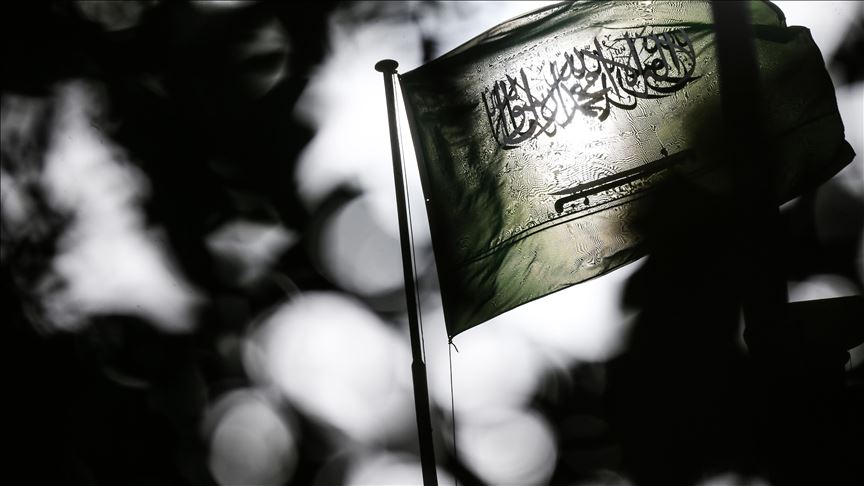Saudi Arabia maintains silence on UAE-Israel deal
No reaction from Arab League on normalization deal

ISTANBUL
The Arab League and Saudi Arabia remained silent Friday on a deal between the United Arab Emirates (UAE) and Israel to normalize relations.
Among the Gulf countries, Saudi Arabia’s close ally, Bahrain, became the first to congratulate the UAE on the deal. Oman also congratulated the UAE after Bahrain.
Egypt was the first country to express satisfaction with the deal.
Unlike Egypt and Bahrain, Turkey, Palestine, Iran and Libya condemned the deal.
No statement from Saudi Arabia, Arab League regarding deal
Saudi Arabia, one of the close allies of the UAE, has not commented on the deal.
There was no condemnation or reaction from the Arab League and the group has also chosen to remain silent.
Secretary General of the Executive Committee of the Palestine Liberation Organization Saeb Erekat said the Secretary General of Arab League Ahmed Aboul Gheit should resign if he does not make a statement denouncing the deal.
Egypt
President Abdul Fattah el-Sisi showed his pleasure with the agreement on Twitter.
“I followed with interest and appreciation the joint statement between the United States, United Arab Emirates and Israel to halt the Israeli annexation of Palestinian lands and taking steps to bring peace in the Middle East,” he wrote.
UAE's official agency WAM wrote that el-Sisi called Abu Dhabi’s Crown Prince Mohammed bin Zayed Al Nahyan to congratulate him.
Egypt was the first Arab country to enter normalization and establish diplomatic relations with Israel in 1979.
Bahrain
The deal was described as "historical" and would strengthen the "stability of the region” in a report by Bahrain's official agency BNA.
It also praised efforts by the US to ensure the agreement.
After the UAE, Bahrain is expected to sign a deal normalizing diplomatic ties with Israel, according to Israeli state media.
Oman
“An official spokesperson for the Ministry of Foreign Affairs expresses the Sultanate’s support for the UAE’s decision regarding relations with Israel within the framework of the historic joint declaration between it and the United States and Israel,” according to a statement published in the official agency, ONA
Palestine
The Popular Front for the Liberation of Palestine (PFLP) described "normalization" of relations as a poison dagger in the backs of Palestinian people.
The Palestinian Authority emphasized the UAE struck a deal in exchange for the temporary suspension of the annexation of the occupied West Bank by the "occupying state" Israel and the deal was reached in the shadow of Israel’s plans to Judaize the Masjid al-Aqsa.
Other Palestinian factions, including HAMAS, Fatah and the Islamic Movement decried the deal.
Iran
Hossein Amirabdollahian, the top foreign policy advisor to Iran's parliament speaker, criticized the UAE administration and claimed “Abu Dhabi’s behavior has no justification, turning [its] back on the Palestine cause.”
Amirabdollahian said the move to normalize ties with "fake, criminal Israel" will not serve the purpose of "peace and security" but will only serve the interests of Israel who is committing "crimes.”
Libya
The agreement is a form of betrayal, said a top Libyan official.
Mohamed Amari Zayed, a member of the Libyan Presidential Council, told Al-Jazeera TV that "this is a betrayal of the UAE state that doesn't surprise. With its destructive role in Libya, Syria and Yemen, it is a natural result of the embargo imposed on Qatar, Palestine and the independent nations of the region."
Jordan
Jordan, the second Arab country to have as diplomatic relations with Israel also condemned the agreement.
"If Israel sees the agreement as an incentive for the end of the occupation and the return of the Palestinian people's right to freedom and to establish their independent state on the 1967 borders with Eastern Jerusalem as its capital, the region will move towards a just peace. However, if Israel does not do this, the conflict will deepen and threaten the whole region,"
Foreign Minister Ayman al-Safadi said in a statement.
Israel and the UAE reached a historic deal Thursday that will restore diplomatic ties. The Emirates became the third Arab country to recognize Israel after Jordan and Egypt.
The deal was brokered by US President Donald Trump in a telephone call with Israeli Prime Minister Benjamin Netanyahu and Abu Dhabi Crown Prince Sheikh Mohammed Bin Zayed Al Nahyan.









